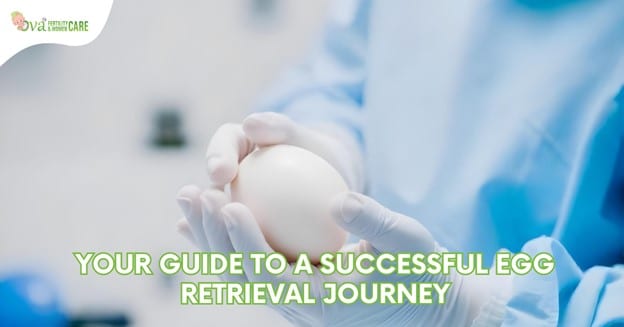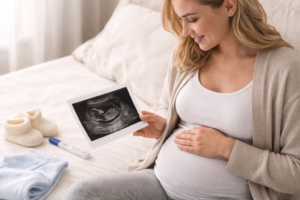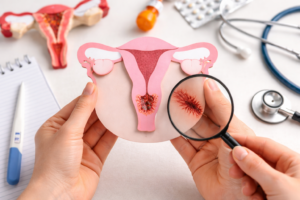The egg retrieval process is a crucial step in In Vitro Fertilization (IVF) and fertility preservation, often serving as a significant milestone on the path to parenthood. Whether you are exploring IVF for conception or preserving fertility for future family planning, it’s important to understand each stage of the egg retrieval journey. This guide will walk you through the egg retrieval preparation, the procedure, potential egg retrieval side effects, and the egg retrieval recovery time, providing valuable insights and tips for a successful outcome.
What Is the Egg Retrieval Process?
Egg retrieval is a vital component of IVF treatment. The procedure involves extracting mature eggs from the ovaries, which are then fertilized with sperm in a laboratory. Once fertilized, the resulting embryos are transferred to the uterus or cryopreserved for future use.
Preparation for the Egg Retrieval Process
Preparation is key to achieving a successful egg retrieval procedure. Here’s what to expect as you prepare:
1. Optimizing Your Health
To maximize your chances of success, it’s crucial to optimize your health well before your fertility window. Here are some tips for preparing your body:
- Avoid alcohol, smoking, and recreational drugs.
- Follow a nutritious diet with balanced meals.
- Maintain a regular exercise routine and ensure adequate sleep.
- Take prenatal vitamins and supplements as advised by your doctor.
- Reduce exposure to endocrine disruptors and stress.
2. Pre-Cycle Labs and Evaluations
Before beginning the stimulation phase, a series of pre-cycle labs are typically conducted to assess your reproductive health. This includes blood tests to measure hormone levels, ovarian reserve, and any underlying conditions. Male partners may also undergo semen analysis. The results of these evaluations help your fertility specialist create a tailored treatment plan.
3. Medication and Ovarian Stimulation
Ovarian stimulation is a critical part of the egg retrieval process. Fertility medications, usually in the form of hormonal injections, are used to stimulate the ovaries to produce multiple eggs. This step helps ensure that more eggs are available for retrieval, increasing the chances of successful fertilization.
A personalized medication plan will be provided, with clear instructions on how to administer these injections. Monitoring through ultrasounds and blood tests allows the fertility team to track the development of follicles, which house the eggs.
Read More: ‘THE HEART’ of every IVF CENTRE – Embryology Laboratory
The Egg Retrieval Procedure

Once the follicles have reached an optimal size (around 18-20 mm), the egg retrieval procedure is scheduled. Here’s what to expect during the process:
1. Administering the Trigger Injection
A key step before retrieval is the administration of an HCG Trigger injection. This injection helps mature the eggs and prepares them for retrieval. It is usually timed precisely, around 36 hours before the procedure, to ensure that the eggs are ready.
2. The Retrieval Day
On the day of the procedure, you will need to arrive at the clinic with an empty stomach. The egg retrieval is performed under mild general anesthesia, ensuring that you remain comfortable and pain-free during the process. The procedure typically takes about 10 to 30 minutes, depending on the number of follicles.
During the retrieval, a needle is guided through the vaginal wall into the ovaries using ultrasound imaging. The follicular fluid, containing the eggs, is gently aspirated from each follicle. This fluid is then transferred to the IVF lab, where embryologists isolate and assess the eggs.
Read More: How we care during IVF Journey
What Happens After Egg Retrieval?
1. Lab Analysis and Fertilization
Once retrieved, the eggs are cleaned and evaluated for quality. The eggs can then be frozen through cryopreservation or fertilized with sperm using traditional IVF or Intracytoplasmic Sperm Injection (ICSI). After fertilization, the eggs become embryos, which are monitored over the next few days for development.
2. Recovery Time and Post-Procedure Care
The egg retrieval recovery time is usually short. Most patients are able to go home within a few hours after the procedure. You may experience mild cramping, bloating, or spotting, which can be managed can be managed by mild pain relief medications. It’s essential to rest on the day of the procedure and avoid strenuous activities for the next few days.
While most women can return to work the next day, it’s advised to listen to your body and take an extra day off if needed. Light activities like walking are generally safe, but avoid heavy exercise until you receive the go-ahead from your fertility specialist.
Potential Side Effects of Egg Retrieval
Though the egg retrieval procedure is generally safe, it can be associated with some side effects. Common egg retrieval side effects include:
- Bloating and mild abdominal discomfort.
- Spotting or light bleeding.
- Mood swings due to hormonal changes.
- Bruising or soreness at injection sites.
In rare cases, some women may experience Ovarian Hyperstimulation Syndrome (OHSS), a condition where the ovaries become swollen and painful due to an excessive response to fertility medications. Symptoms include severe bloating, rapid weight gain, and difficulty breathing. It’s important to monitor your symptoms and contact your healthcare provider if you experience any unusual discomfort.
Read More: Male Infertility Treatments: From Diagnosis to Fatherhood
Tips for Success During the Egg Retrieval Process
To increase the chances of a successful outcome during the egg retrieval process, consider these egg retrieval success tips:
- Follow your medication schedule precisely.
- Attend all monitoring appointments to ensure proper dosage adjustments.
- Keep open communication with your fertility specialist regarding any symptoms or concerns.
- Focus on maintaining a balanced lifestyle with a focus on nutrition, hydration, and stress management.
Conclusion: Navigating Your Egg Retrieval Journey
The egg retrieval process is a significant step in the journey toward conception or fertility preservation. By understanding what to expect before, during, and after the procedure, you can feel more empowered and prepared for this pivotal phase. While the process may seem overwhelming, the guidance of an experienced fertility team can make all the difference in achieving a positive outcome. If you have any questions or concerns, don’t hesitate to reach out to your fertility clinic for further support.
By staying informed and following your fertility specialist’s instructions, you can navigate the egg retrieval process with confidence and clarity. The journey may be challenging, but it brings you closer to achieving your dream of growing your family.









 No need to worry, your data is 100% Safe with us!
No need to worry, your data is 100% Safe with us!
1 thought on “Egg Retrieval Process: Step-by-Step Guide, Recovery, Risks & Success Tips”
Wow! Thank you! I permanently wanted to write on my blog something like that. Can I include a portion of your post to my blog?